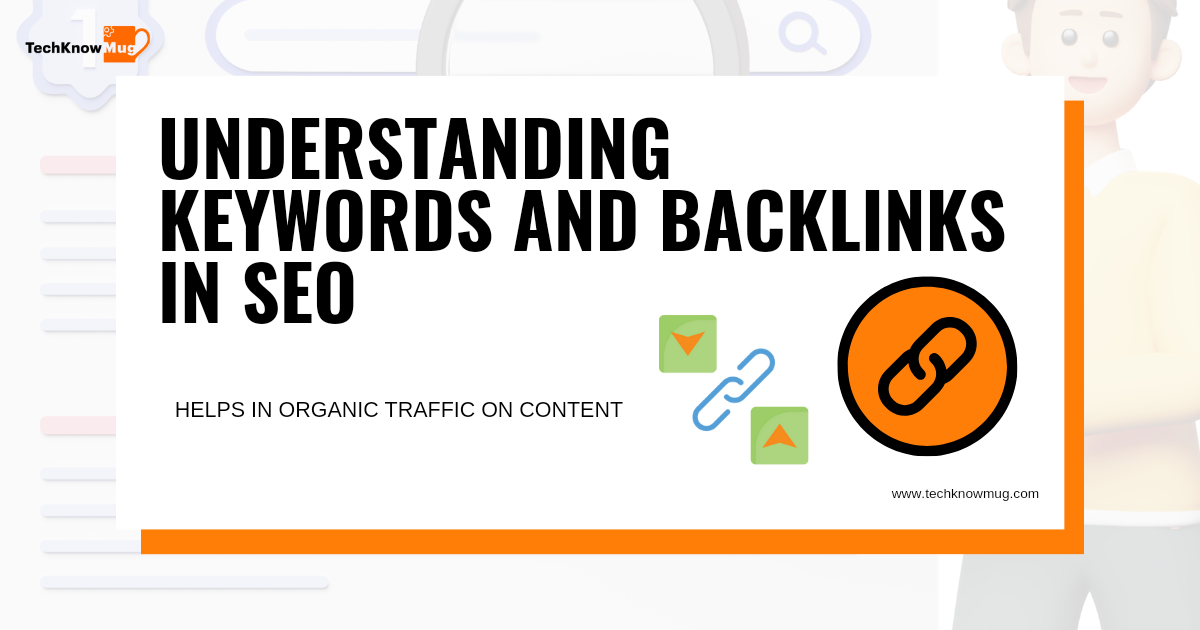
Keywords and backlinks are like the dynamic duo of SEO, working hand in hand to elevate your website’s visibility and credibility in the vast landscape of the internet.keywords and backlinks form a symbiotic relationship in the SEO ecosystem. Keywords pave the way for search engines to understand your content, while backlinks act as the digital thumbs-up from the online community. Together, they enhance your website’s visibility, credibility, and ultimately, its success in the competitive realm of search engine rankings. It’s like a tag team working together to make sure your website doesn’t just exist on the internet but thrives in the spotlight.
*Understanding Keywords in SEO*
In the realm of Search Engine Optimization (SEO), keywords play a pivotal role in driving organic traffic to a website. Understanding what keywords are and how to use them effectively is fundamental for any online presence.
Importance of Keywords in SEO
Keywords act as the bridge between what people are searching for and the content you provide. They are the phrases or terms users enter into search engines. Optimizing your content with relevant keywords enhances the chances of your website appearing in search results.
Types of Keywords in SEO
Short-tail Keywords:
Short and concise phrases, usually one to three words, that capture broad search intent. Example: “SEO tips.”, “Nike Shoes”, “Wooden Furniture” etc.
Long-tail Keywords:
More specific and longer phrases, often a sentence or question. Example: “How to optimize content for SEO.”, Digital Marketing Agency Near Me” etc.
LSI Keywords (Latent Semantic Indexing Keywords):
Latent Semantic Indexing keywords are semantically related terms that enhance the context of your content. Example: “SEO strategies” in conjunction with “search engine optimization techniques.”
What is Keyword Research?
Keyword research is the process by which you research popular search terms people type into search engines like Google, and include them strategically in your content so that your content appears higher on a search engine results page (SERP).
Tools for Keyword Research:
Utilize tools like Google Keyword Planner, SEMrush, or Ahrefs to identify relevant keywords for your niche.
Analyzing Keyword Competition:
Evaluate the competitiveness of keywords. Balance between high-search-volume and low-competition keywords for optimal results.
What is Keyword Placement?
Keyword Placement is all about strategically incorporating relevant keywords into your content to boost its visibility on search engines.
Title Tags:
Incorporate primary keywords in your page titles to signal the content’s relevance to search engines.
Meta Descriptions:
Compose compelling meta descriptions with targeted keywords to entice users to click on your link.
Header Tags:
Use header tags (H1, H2, etc.) to structure your content and include relevant keywords for SEO.
Content Body:
Naturally integrate keywords within the content body. Avoid overloading – maintain readability.
Keyword Density:
Strive for a balanced keyword density. Keyword stuffing can harm your SEO efforts. Aim for natural integration.Many SEOs recommend using approximately 1-2 keyword for every 100 words of copy. That factors in to about 1-2% keyword density.
Monitoring and Updating Keywords:
SEO is dynamic. Regularly monitor keyword performance and update your strategy based on evolving trends and user behavior.
Watch Video On What are Keywords and How to Choose Them?
Conclusion:
Keywords are the compass guiding users to your digital doorstep. Mastering their selection, placement, and adaptation is crucial for a robust SEO strategy. Stay informed, adapt to changes, and watch your online presence flourish.
*Understanding Backlinks in SEO*
In the complex world of Search Engine Optimization (SEO), backlinks emerge as crucial elements influencing a website’s visibility. This comprehensive guide will unravel the mysteries behind backlinks, their types, and their impact on SEO.
What Are Backlinks?
Backlinks, also known as “inbound links” or “incoming links,” are hyperlinks that direct users from one website to another. In the context of SEO, these links play a pivotal role in determining a website’s authority and relevance.
Importance of Backlinks in SEO:
Search engines consider backlinks as a vote of confidence. The more reputable websites link to your content, the more search engines perceive your site as valuable and authoritative. This, in turn, can positively impact your search engine rankings.
Types of Backlinks in SEO
Natural Backlinks:
Earned organically, natural backlinks result from other websites finding your content valuable and linking to it without any request from your end.
Manual or Outreach Backlinks:
Proactively seeking backlinks by reaching out to other websites, often through guest posting, influencer collaborations, or networking.
Self-Created Backlinks:
Links that you create within your content, such as in forums, comments, or directories. While some can be beneficial, caution is necessary to avoid spammy practices.
How Search Engines View Backlinks
Search engines evaluate the relevance, authority, and diversity of backlinks. A diverse set of quality links from authoritative sources is more beneficial than numerous links from low-quality websites.
Quality vs. Quantity: A Backlink Dilemma:
Focusing on high-quality backlinks is more effective than accumulating a large quantity of links. A single link from a reputable site can carry more weight than multiple links from less reputable sources.
How To Build Effective Backlinks
Guest Posting:
Creating valuable content for other websites in exchange for a backlink can enhance your site’s visibility and authority.
Social Media Engagement:
Active participation in social media can lead to natural backlinks as users share and promote your content.
Influencer Outreach:
Collaborating with influencers in your industry can result in backlinks from their platforms, amplifying your reach.
Common Backlink Mistakes to Avoid:
Avoid practices like buying links, excessive anchor text optimization, and neglecting link quality, as these can lead to penalties and harm your SEO efforts.
Monitoring and Analyzing Backlinks:
Regularly assess your backlink profile using tools like Google Search Console or third-party applications to identify and address any issues.
Watch Video On What Are Backlinks and How Do They Work?
Conclusion:
In the intricate realm of SEO, understanding and strategically incorporating backlinks can significantly impact your website’s visibility and authority. By cultivating a diverse and high-quality backlink profile, you pave the way for improved search engine rankings and increased organic traffic.

63 thoughts on “What Are Backlinks And Keywords? Why Are They Important for SEO?”
Comments are closed.